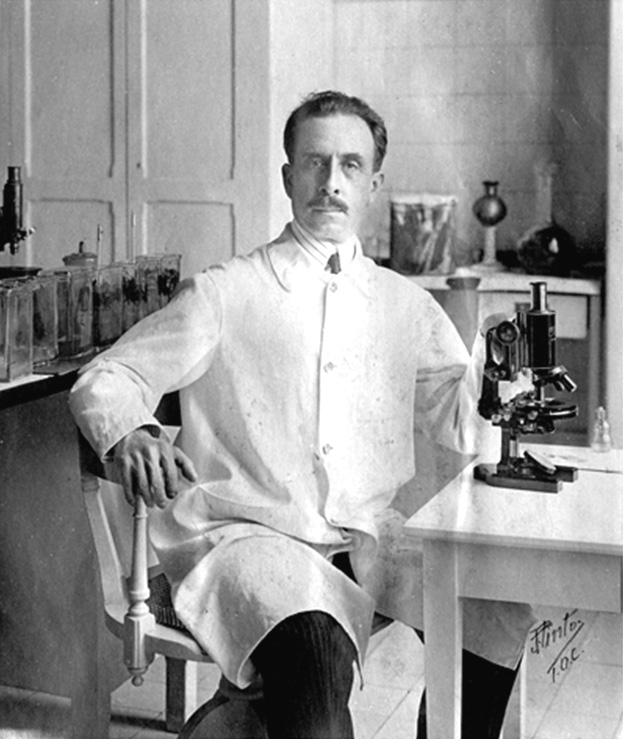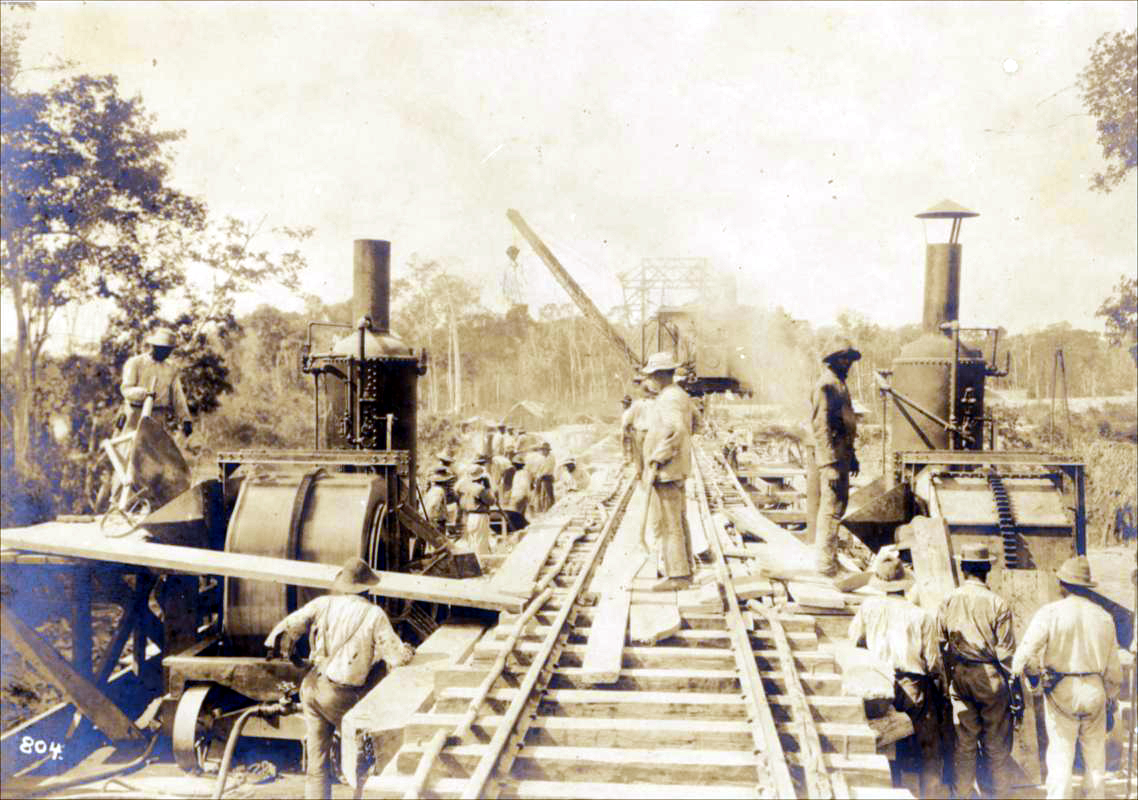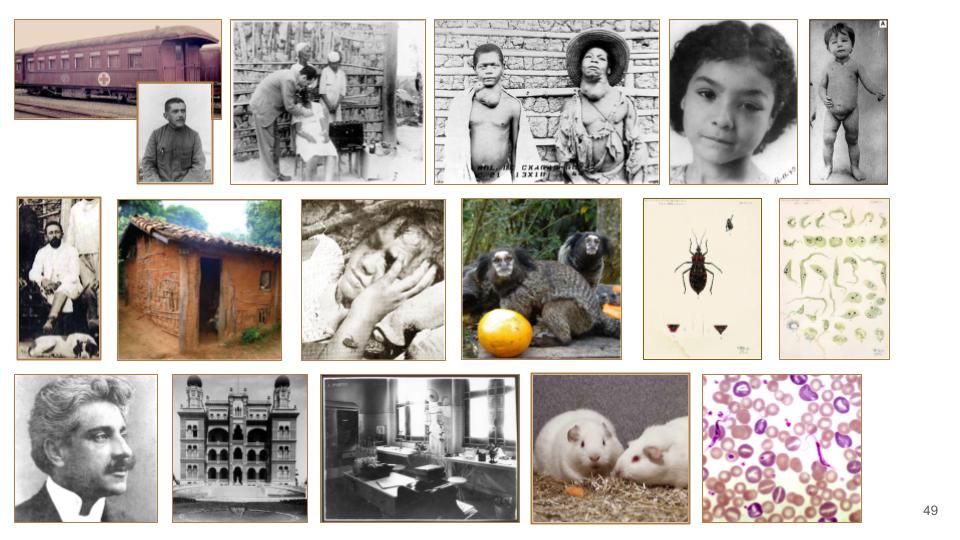The Railroad Workers' Disease
by Nathália Helena Azevedo & Thiago Marinho Del Corso
 In 1907 Carlos Ribeiro Chagas is sent to the small town of Lassance, in the interior of Brazil, to deal with what was understood as malaria and which was afflicting the workers and delaying the construction of the railroad, part of the development of the country. In 1907 Carlos Ribeiro Chagas is sent to the small town of Lassance, in the interior of Brazil, to deal with what was understood as malaria and which was afflicting the workers and delaying the construction of the railroad, part of the development of the country.  Eventually, he discovers a new disease (Chagas disease), its causative agent (the protozoan Trypanosoma cruzi), its vector (a "kissing bug"): an unprecedented triple discovery. Chagas disease, also known as American trypanosomiasis, is endemic in 21 Latin American countries and the southern United States, putting 75 million people at risk worldwide. There is no known cure. Eventually, he discovers a new disease (Chagas disease), its causative agent (the protozoan Trypanosoma cruzi), its vector (a "kissing bug"): an unprecedented triple discovery. Chagas disease, also known as American trypanosomiasis, is endemic in 21 Latin American countries and the southern United States, putting 75 million people at risk worldwide. There is no known cure.
NOS features include:
- the role of political and economic factors in supporting scientific research
- the role of personal background, motivations and skills
- the role of analogy
- the role of local or anecdotal knowledge versus systematic investigation
- the role of chance or contingency
- the role of patience and persistence
- the role of collaboration
- the relationship between laboratory studies and field studies
- the application of research knowledge to public health
- Incentives and rewards in cience
Download .PDF of narrative text w/ thumbnail images.
Download presentation (slideshow for PDF browser).
Download Teaching Notes (guide for leading nature of science discussions).
Download PPTX presentation (20MB).
Download ZIP file with text, presentation and teaching notes.

|

